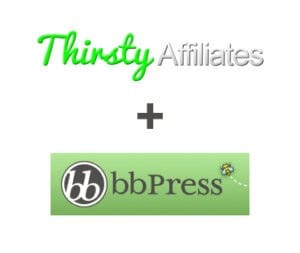WordPress.com is a free software that you can use to create a blog or website for almost any kind of content you want, like pets, DIY, cooking, travel, weddings, etc.
A WordPress.com site is free, and you don't have to pay for the themes and basic customisation unless you want something exclusive for your blog or site. Although WordPress.com has some limitations such as not allowing you to lose plugins, upload custom themes, and use Google AdSense and other third-party advertising placement services, it doesn't mean you can't monetize it. It just means you have to abide by their rules.
There are many effective ways to monetize your WordPress.com website aside from affiliate marketing. Of course, each method has its requirements that you need to meet before you can start making money legally.
Monetizing Your WordPress.com Site: What You Need to Know
First of all, WordPress.com has its terms of service that every user must comply with. Failing to do so gives them the right to delete your site, losing you all your data without hope of retrieving any of it. That said, WordPress.com's terms of service are very clear on what you can and can't do in the name of monetizing your website.
- Using advertisements to monetize your WordPress.com site. The ads showing on your site cannot be from third-party advertising networks. To be able to place ads on your WordPress.com site, you need to qualify for WordAds, and that is what you will use to post ads on your site or blog. Users who own Premium or Business WordPress.com plans automatically get access to WordAds. For those whose sites are using the free plan, you can only apply to use WordAds if your site has appropriate and relevant content, and the traffic to your site is rated from medium to high (we are looking at thousands of page views per day). Ads from third-party ad networks like BuySellAds and Google AdSense are not allowed on a WordPress site.
- You can monetize your WordPress.com site with sponsored posts or articles. According to WordPress.com, sponsored posts refer to any content that promotes a particular product or service, which the site owner has been encouraged to promote by the company or person that owns the product or service. In doing so, the owner will receive some form of payment, either in cash or free products. Sponsored posts are usually promoted on sites or blogs that are of particular niches, i.e. they post content on a specific topic. Sponsored posts is an approved way of monetizing your WordPress.com site, but WordPress.com does not condone sites whose content is mainly sponsored posts.
- You can monetize your WordPress.com site by selling physical products. Any physical product (books, crafts, art, clothes, footwear, even cooking utensils) can be sold on your WordPress.com site. You can put pictures of the items you have to sell with the appropriate descriptions and their prices. Anyone interested in buying will let you know in the comments section, through email, or phone number (that depends on you). WordPress.com allows you to set up a PayPal link in your content so that customers can pay you through PayPal. You will handle the delivery of the products.
- You can monetize your WordPress.com site by selling digital products. Digital products include e-books, digital art and photos, and courses. Similar to selling physical products, you can post pictures of it together with its description and price, and with a PayPal link for payment.
- You can monetize your WordPress.com site by providing services. If you are a freelance writer, graphic designer, wedding planner, or you provide some form of service, you can use your WordPress.com site to promote your services to the public. You can post a description of the services you provide and how much you charge. Just don't forget to include your contact info. You could also write content related to your field of expertise to showcase what you do. This is a great way to earn money using WordPress.com.
- Using affiliate links on your WordPress.com site is allowed as long as the purpose is to create original content. For instance, if you want content that is about music you love, the latest fashion pieces you like, books you are currently into, or things that you and your readers are interested in, you can post the relevant affiliate links in such content. Nevertheless, WordPress.com does not allow any affiliate links for gambling, porn, malware, or any kind of phishing scam out there on the Internet. Also, WordPress.com does not allow users to create blogs or sites with affiliate links for the sole purpose of driving traffic to get high numbers of click-throughs and earn money. This means that affiliate marketing is not supported by WordPress.com.

Evidently, there are several ways to monetize a WordPress.com site that does not include affiliate marketing. However, it does not mean that affiliate marketing isn't a good way of monetizing a website or blog, nor that WordPress.com is the only site to be used to make money.
WordPress.org is a better option if you want to monetize your site, and it is the best option for affiliate marketing programs. A WordPress.org site is completely free; you just have to pay for web hosting from a reputable web hosting company. Once you have gotten your domain name, setting up your WordPress.org site is easy, and there are plenty of tutorials that can walk you through the process. You can install any number of plugins and upload all the custom themes and color schemes you want. Furthermore, your WordPress.org is completely and absolutely yours to do with as you will (as long as it isn't illegal).
If you want things easy, and the site you are creating is not specifically to earn some money, you should stick with WordPress.com. If, however, your main purpose of creating a site is to monetize it, WordPress.org is the way to go. All affiliate marketers should make sure they use WordPress.org for more features, more control, more freedom, a wider outreach, and more revenue.


